English - Writing
Writing - Statement of Curriculum Intent
“You can make anything by writing” - CS Lewis
At All Cannings School, our ambition is that ALL pupils are writers. Our learning makes a difference because pupils are equipped with the necessary skills to enable them to achieve their aspirations and have the confidence to use and apply them in all aspects of everyday life.
We want our pupils to enjoy writing and to be competent and confident in the whole process. We nurture a culture in which pupils take pride in their writing and enable our pupils to write accurately, adapting their language and style according to purpose and audience and enabling them to use the written word as an effective means of communication.
Committed to our MAT vision of ‘Every child, every chance’, our aim is that all children will learn to write effectively, regardless of their background, needs or abilities.
With these aspirations, our INTENT for the writing curriculum is:
- To ensure that all children are able to write as an effective means of communication - for any purpose
- To ensure that all pupils are able to write fluently and with confidence
- To promote writing for both pleasure and information
- To enrich children’s vocabulary
- To develop understanding of grammar and knowledge of linguistic conventions which they can apply to their own writing
- To provide consistent and progressive phonics teaching in the early teaching of spelling
- To ensure that all children make sufficient progress to meet or exceed age-related expectations.
We achieve this by providing a rich, diverse curriculum underpinned by our school’s Christian values of Wisdom, Generosity, Koinonia, Compassion, Peace and Joy and linked by our Golden Threads.
This enables every member of our school community to recognise and show that learning makes a difference.
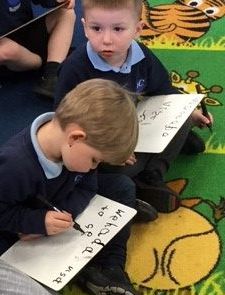 |
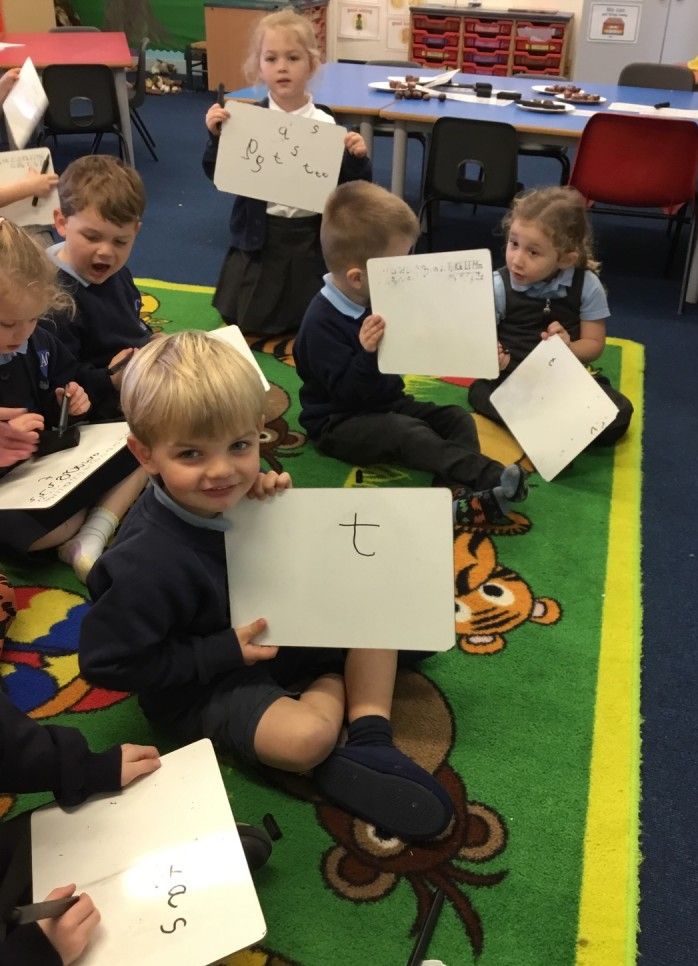 |
 |
Implementation
The curriculum is delivered through the implementation of ‘The 2014 National Curriculum’ in both discrete lessons and through other subject areas where appropriate.
Early Years
The All Cannings writing journey begins in Early Years, with priority given to the development of early writing skills. Daily phonics sessions take place every morning, which introduce pupils to the concept of combining letters to create whole words following the Little Wandle Letters & Sounds scheme. This incorporates regular assessments and ‘Keep Up’ sessions for pupils requiring additional practise and intervention.
Children are taught basic letter formation using ‘Letterjoin’.
Information sheets on new sounds and words taught are sent home weekly so parents can support learning at home.
Opportunities for independent writing linked to role play, familiar texts and personal experiences are provided in all areas of the learning environment, both inside and outside – all learning areas have access to a wide variety of writing materials; word mats/word books; individual letters for word building and GPC posters. Throughout the day there are regular opportunities for the children to engage in writing tasks, either initiated by themselves or adults. Children are encouraged to apply the writing skills they have learnt to write for pleasure and extend their understanding across the curriculum.
Examples of early writing at school are shared with parents via Tapestry and parents are encouraged to do the same when their child writes at home. Parents are informed of their child’s progress at Parents’ Evenings and annual reports, with additional communication at other times as required.
Information sessions and guidance leaflets are provided to encourage and support early writing regularly at home.
Key Stage 1
Children in Reception and Year 1 take part in daily 25 minute phonics lessons, with Year 2 taking part in a spelling lesson at the same time.
Handwriting (Letterjoin), spelling (No Nonsense Spelling?) and grammar & punctuation are taught discretely and we expect pupils to apply the skills they acquire consistently in all writing across the curriculum, following our school writing progression guidance and genre coverage documents.
We invest a significant amount of time in modelling writing as we believe that this is vital in giving pupils the skills to enable them to write confidently in a particular style.
We plan focussed sessions to widen and enrich pupils’ vocabulary, following the programme ‘Word Aware’.
Opportunities for more extended writing are included regularly to build up stamina.
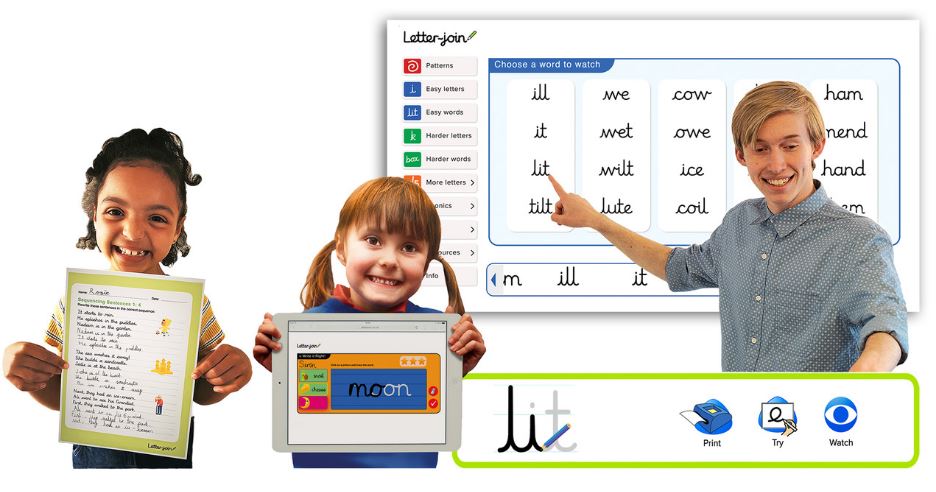
Key Stage 2
As in KS1, spelling, grammar and punctuation are taught discretely and we continue to ensure that modelling of writing is a priority.
During Key Stage 2, greater emphasis is placed on building writing stamina and the provision of engaging opportunities to allow pupils to independently apply and develop skills; these are either based on focus texts or have cross curricular links.
‘Word Aware’ sessions focus on vocabulary enrichment and pupils are encouraged to be ambitious with their choices.
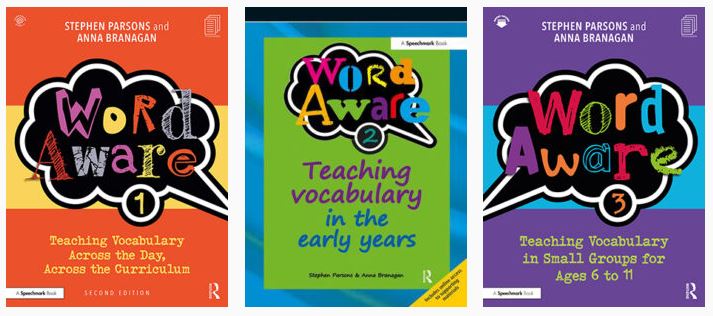
Assessment
Assessment for learning is ongoing. Staff assess attainment four times a year to update SPTO using evaluations made on pupils’ writing across all curriculum areas. Single Word Spelling Tests are carried out in Term 2 for Years 1 to 6 and in Term 6 for EYFS and Year 1. Testbase SPaG is administered in Term 6 for Years 3,4 & 5
SEND, EAL, Interventions and fast catch up
Quality first teaching supports all children to achieve.
The English lead, class teachers, SENCO and the SEND Manager work in close partnership to ensure that SEND pupils with difficulties in any aspects of writing have their needs identified promptly and interventions provided that will accelerate their progress. Progress is measured and tracked to ensure they are catching up with their peers.
In KS1, additional teaching and support is provided through 1:1 and group interventions and timetabled “Keep Up” phonics sessions.
In KS2, additional teaching is provided through regular 1:1 or small group interventions to support children’s progress.
Identified children are carefully tracked through pupil progress meetings and using SPTO data.
Pupil Premium
Pupil Premium children, in addition to classroom interventions, access 1:1 and group sessions with dedicated support from our SEND Manager as required.
Impact
Our curriculum ensures that our pupils have a positive attitude to writing and have acquired all the skills necessary to become fluent, confident and competent communicators across all genres. Pupils are able to express their opinions and creativity in writing that is well structured, technically accurate and engages the reader. They have the desire and confidence to experiment with their writing in order to continually expand their repertoire.
Progression of Skills in Writing Y1
Progression of Skills in Writing Y2
Progression of Skills in Writing Y3
Progression of Skills in Writing Y4
Progression of Skills in Writing Y5



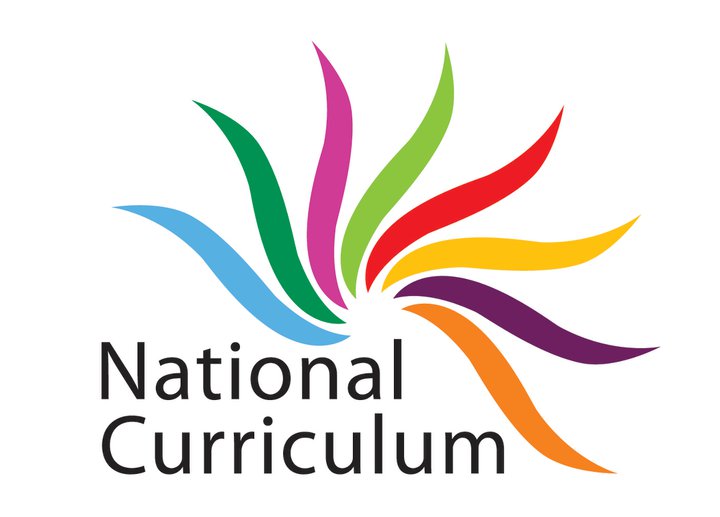
Close